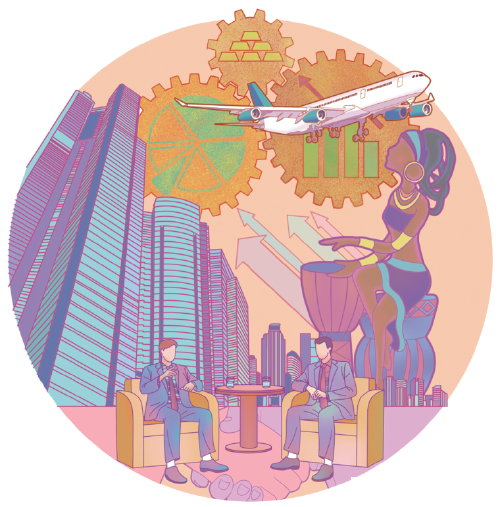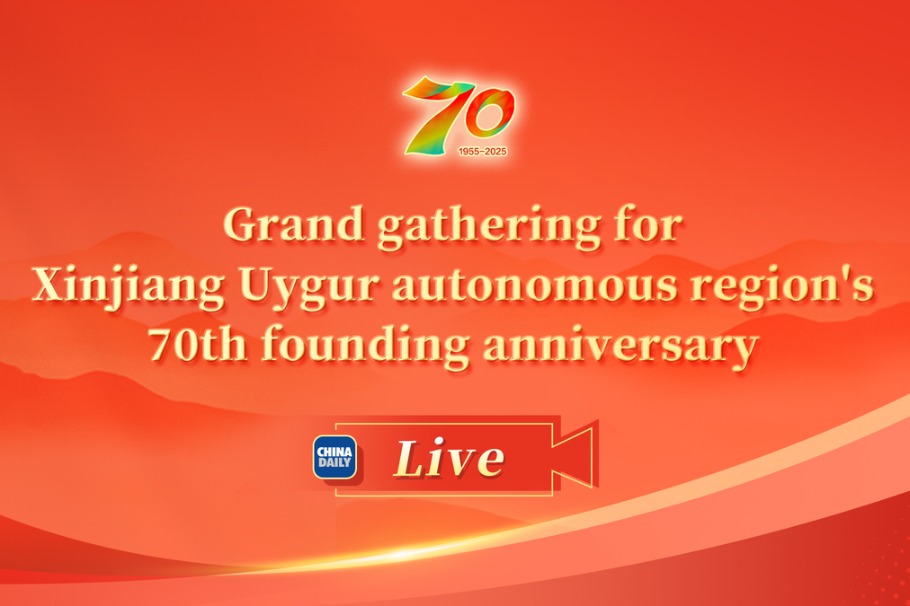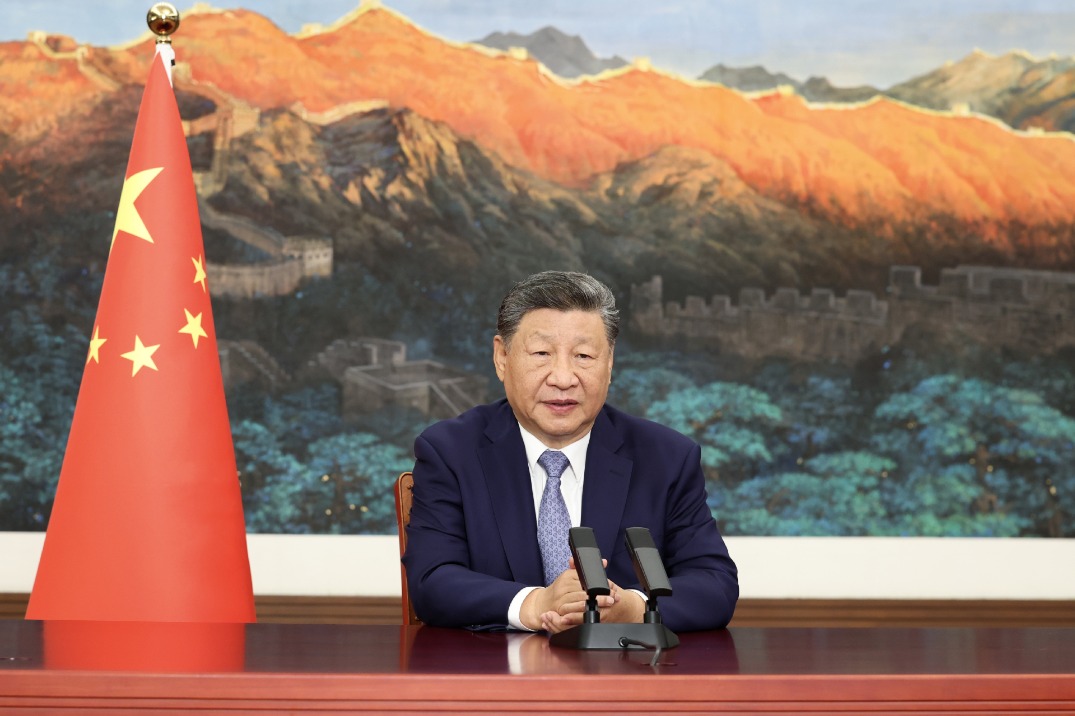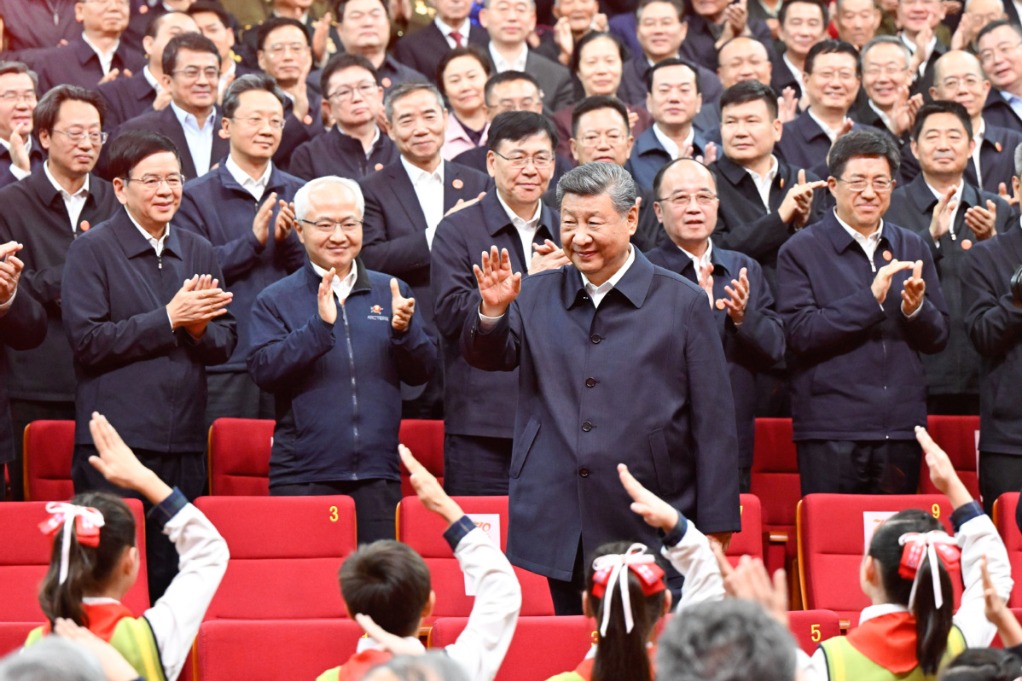No place for great power games
Africa should ensure that its engagement with China and the US is to its own benefit


This year marks half a century since Richard Nixon, as president of the United States, made his historic visit to the People's Republic of China. The visit was described as the week that changed the world, since Sino-US interaction has consequences for the tenor of international politics and the fate of the global economy. Written from Africa's perspective, this piece takes its cue from the 1972 Sino-African rapprochement and casts it in light of what is currently happening in the international system and Africa's standing therein.
Africa had already noticed the importance of having China in the fold of international players. The Bandung Conference of 1955 was at the time the biggest solidarity conference among peoples of the developing world. It paved the way for China's establishing of diplomatic relations with Egypt a year later, the first relationship of its kind between China and an African country. The appreciation between China and its African counterparts was mutual. That is why China was involved in Africa's struggle against colonialism and apartheid, when Europe and the United States were more concerned about maintaining apartheid and settler rule as bulwarks against the alleged spread of communism in Africa. At the time, much of Africa was still not yet liberated and thus had limited influence on global affairs, and on China's standing at the United Nations.
It was thus not surprising that by 1971, after most of Africa had cast off the chains of colonial and settler bondage and gained recognition at the UN, they did not forget China's role as a faithful friend during the dark days of oppression. In addition, China's munificence during the construction of the Tanzania-Zambia Railway line was a rebuke of those countries which were content with landlocked African countries such as Zambia remaining at the mercy of hostile apartheid and colonial territories through which crucial routes of exports and imports passed. When Taiwan's status were debated and voted on at the UN, Africa played an instrumental role in terms of numbers, and China has never forgotten the debt of gratitude that it owes Africa. The motion that passed United Nations General Assembly Resolution 2758(acknowledging the PRC as the only representative of the Chinese people) was proposed most forcefully by Algeria, against objections from the United States.
Massive changes have happened since February 1972. The Cold War is history. US politicians now view China as a menacing threat and hence the bifurcations of the Cold War era might again play out in how China and the US relate, with implications for Africa.
One of the spheres in which the US feels tempted to hector others is in the technological sphere. It is noteworthy that most African mobile phone users use Google's Android operation system, but it is installed on Chinese phones. This reality gives Africans dependable access to global communication systems and applications, as well as very affordable handsets. However, with the development of Huawei's Harmony OS, China might be edging the US out even in terms of software, which has hitherto been dominated by Google and Apple.
An affordable Huawei smartphone with Harmony as software could be a game-changer for Africa, where the population is mainly young people who are eager to be connected to the rest of the world, and China, too, to the detriment of China's competitors who always appoint themselves as Africa's unsolicited counselors. African countries have been counseled in both subtle and not-so-subtle ways to reject China's technology. The fears of Chinese technological dominance in Africa are fueled by the fact that while Huawei accounts for about 9 percent of handsets in Africa, the percentage of Chinese phones in Africa in general stands at 64 percent. Africa's young and ambitious citizens will irrepressibly gravitate toward technologies that are affordable but can enhance development through the acquisition of soft skills, easy access to information about opportunities appearing or advertized online, and by using technology for a smooth transfer of knowledge, remittances and financial transactions. A zero-sum tussle between China and the US could thus put many Africans in a quandary.
It is not only in the technology sphere where Sino-US dynamics might have a telling impact on Africa. US initiatives such as the Africa Growth and Opportunities Act and Prosper Africa could be used as tools to counter China's initiatives such as the Forum on China-Africa Cooperation and the Belt and Road Initiative. If well-intentioned, these initiatives could play complementary roles in Africa. China has proved itself to be big on infrastructure development while the US could leverage its trade and human capital investment. But in all of this, African countries should not be relegated to the role of bystanders.
China and the US might increase their investment or presence in Africa, in an attempt to upstage each other. Africa sorely needs foreign direct investment, but not at the cost of African agency and sovereignty. Indications show that Africa is willing to accept FDI, irrespective of its provenance, but the continent is wary of FDI that comes with intolerable conditions.
The responsibility to chart Africa's relations resides with Africa and it should be respected by other players. Africa still lags behind the rest of the world in many significant spheres. There is growing concern that, as the fourth industrial revolution accelerates, Africa will be left behind. To prevent that from happening, the continent should court relations with players who will aid Africa's quest to march in tandem with the rest of the world. In effect this entails the adoption of elements of both the US and China pivotal to Africa. This calls for a broader interpretation of the world.
There are many paths open for Africa's development, paths that could borrow elements from even competing global players such as China and the US. Through industry and the appreciation and rewarding of talented people, the US became the biggest economy in the world. Through foresight and opening up the country to the benefit of other countries, China has risen to be a major global economy. The same opportunities abound in Africa, a youthful continent with massive human and natural resources at its command. Harnessing such resources is crucial and, in the continent's dealing with significant powers such as China and the US, making the most of Africa's endowments should be its foremost consideration, rather than a clamor to choose who among the continent's partners Africa should embrace.
The author is director for the Centre for Africa-China Studies at the University of Johannesburg. The author contributed this article to China Watch, a think tank powered by China Daily. The views do not necessarily reflect those of China Daily.
Contact the editor at editor@chinawatch.cn
































